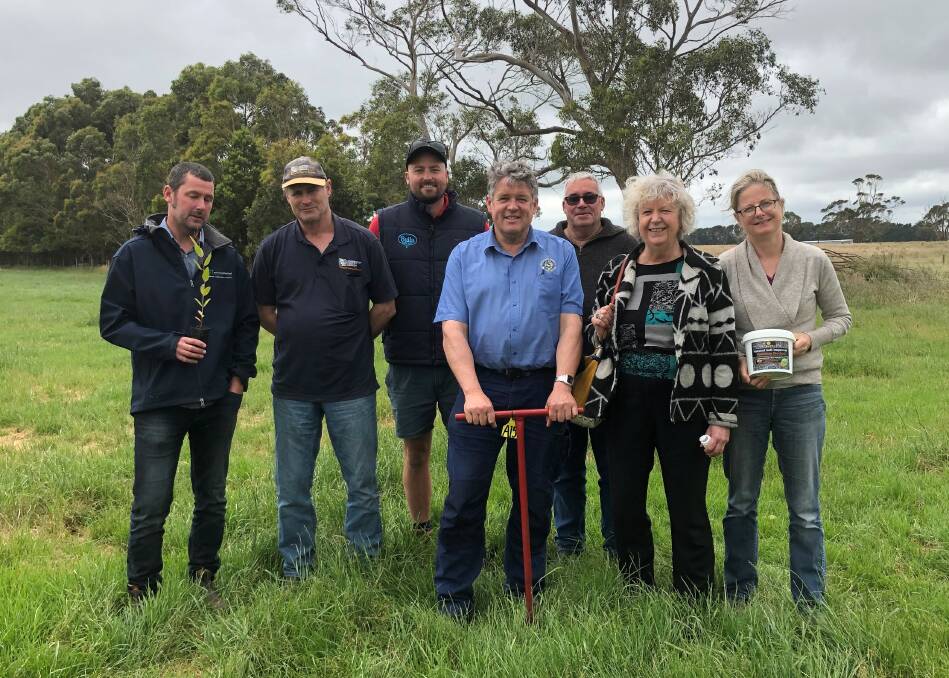
Ecklin South dairy farmer Sam Doolan says he’s “no hard-core greenie” but he wants to explore the worth of more sustainable farming practices.
Subscribe now for unlimited access.
or signup to continue reading
That’s why Mr Doolan, 34, and his partner Belinda submitted their 283 hectare (700 acres) farm on Borthwicks Road in an expression of interest process to be an “exemplar” farm for the “Keeping Carbon on the Farm” pilot project managed by the Heytesbury District Landcare Network.
Their farm, which runs about 580 cows, has since come through to be chosen as the exemplar farm that will be used for a range of activities such as investigating the benefit to soils of applying ameliorants such as biochar and compost.
The project will include soil tests looking at macronutrients, micronutrients and biology in the soil with the aim of improving the soil characteristics, and the health of animals who graze the pastures and crops that those soils support.
Feed trials with pelletised biochar and seaweed compounds are among those being considered along with waste to energy projects.
The project team is also considering doing a whole-farm energy audit on the property, looking at its electricity and thermal energy usage and opportunities for energy savings.
Heytesbury District Landcare Network coordinator Geoff Rollinson said the overall aims of the pilot project were to reduce greenhouse gas emissions, improve animal and soil health and provide an example for farmers and investors to move to a more regenerative model of farming.
Mr Doolan said he was interested in what carbon and carbon-rich biochar could do to improve the soil on his farm.
“Anything that is good for the soil is worth exploring,” he said.
He also hoped the project might be able to reduce any overuse of fertiliser on his farm.
On wider-scale possibilities, Mr Dalton said the “Keeping Carbon on the Farm” pilot project might be able to put farmers “ahead of the game” if government did decide to impose a price on carbon or methane gas emissions.
The Heytesbury and District Landcare Network received $146,582 from the state government to deliver the “Keeping Carbon on the Farm” pilot in conjunction with several partners.
Mr Rollinson has said the dairy industry accounted for 10 per cent of agriculture’s greenhouse gas emissions and it was important to try to reduce them.
Cows produced methane gas, which was 25 times more harmful than carbon dioxide in increasing the impact of greenhouse gas emissions, Mr Rollinson said.














